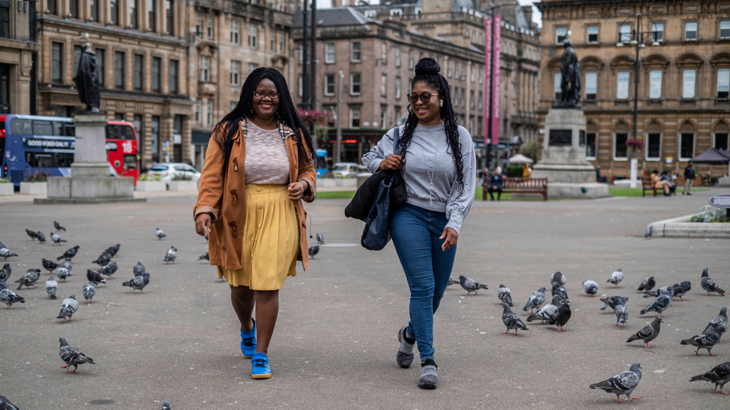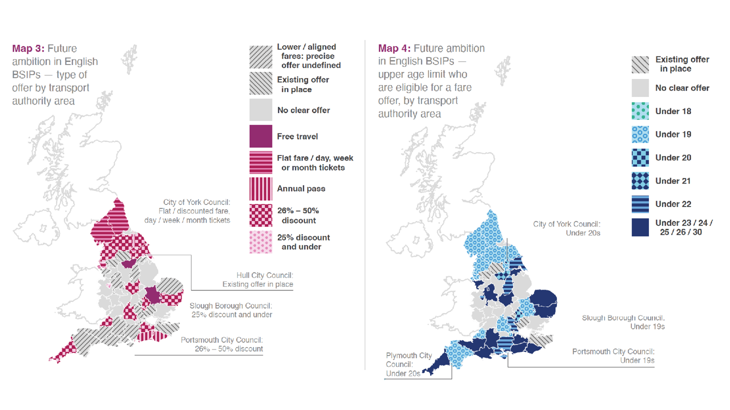We're working alongside the Centre for Transport and Society at the University of the West of England, and a group of young people to look at what local and national decision makers need to do to make bus fares fairer for young people across the UK.

©2021, Brian Sweeney, all rights reserved
Bus travel matters for young people
Buses are complementary to a sustainable transport system, helping people to make journeys to places that cannot be reached by walking, wheeling or cycling.
Buses are particularly important to young people over the age of 16 who are more likely to rely on bus services than other age groups.
Access to buses can affect the experiences and life-defining opportunities that young people are able to reach as they gain independence.
However, for many young people, cost is a barrier to travelling by bus.
Download the Fair Bus Fares for Young People policy briefing
We worked with a group of Young Advisors aged 16 to 25, to examine what changes are needed to make buses fairer for young people.
Our Policy Briefing shares our findings. It has three parts:
- Part 1. Current situation and future ambition for bus fare support
- Part 2. Case Studies
- Part 3. Time to act, including a set of policy 'asks'.
Part 1: Current picture and future ambition
We mapped the current offers available to all young people within a transport authority area.

Currently there are many areas of the UK where there is no support for young people beyond the age of 16.
In areas with an offer for discounted travel, there is little consistency in the type of offer that is available and the upper age limit that is eligible.
Offers range from free bus travel (London, Greater Manchester, and Scotland) to discounts ranging from 15 to 50%.
Very few schemes support young people beyond the age of 18.
Notable exceptions to this include Scotland where bus travel is free for under 22s and West Yorkshire where 19 to 25s receive a 33% multi-operator discount (map 2).
We also mapped the future ambition for bus fare support for young people according to Bus Service Improvement Plans.
These are the plans that the 79 Local Transport Authorities in England (outside London) were asked to produce in November 2021 in order to access government funding for buses.

Bus Service Improvement Plan ambitions (see Maps 3 and 4) and recent policy developments in Scotland and Wales show increasing recognition of the needs of young people over the age of 16 in relation to bus fares.
However, there is still little consistency in age criteria and offer-type.
Part 2: Case Studies
We examined four existing schemes available to young people beyond the age of 16 (18 to 21 Zoom Beyond, South Yorkshire; 16+ Zip Pass, London; 16 to 25 MCard, West Yorkshire; Free travel for Under 22s, Scotland.)
With few schemes available to this age group, these case studies offered rare and valuable insights:
- Bus fare support for young people helps address multiple policy priorities, including supporting access opportunity, reducing inequalities, and shifting travel behaviour away from the car.
- There is a high demand for bus fare support beyond 16 and 18. For example, in London, 98% of young people said free transport was important to them.
- Schemes can have wide benefits to young people and can enhance inclusion of young people from all backgrounds, helping to level the playing field by removing cost as a barrier to mobility.
Part 3: Time to Act
We're asking national governments to set out a minimum offer for young people aged up to 25 and to support local transport authorities to move towards this.
Our recommendations for any transport authority or operator developing their offer is to:
- Offer flat fares to young people up to the age of 25 years
- Align offers across authority boundaries
- Work with young people to develop offers to help ensure available support meets their needs
- Collect and share evaluation data to show how these schemes meet policy objectives.
The policy briefing is produced as part of the project Transport to Thrive which aims to build the case for transport policy that better meets the needs of young people aged 16 to 24.





